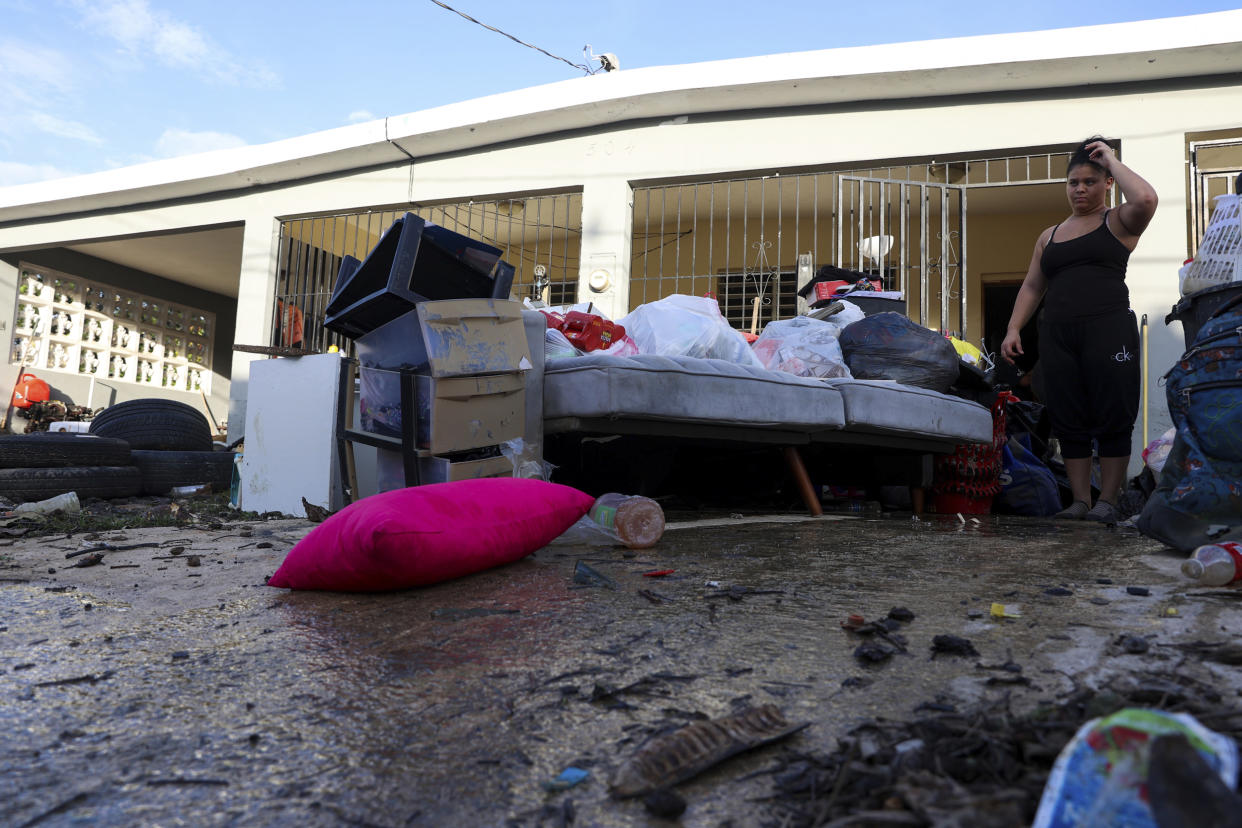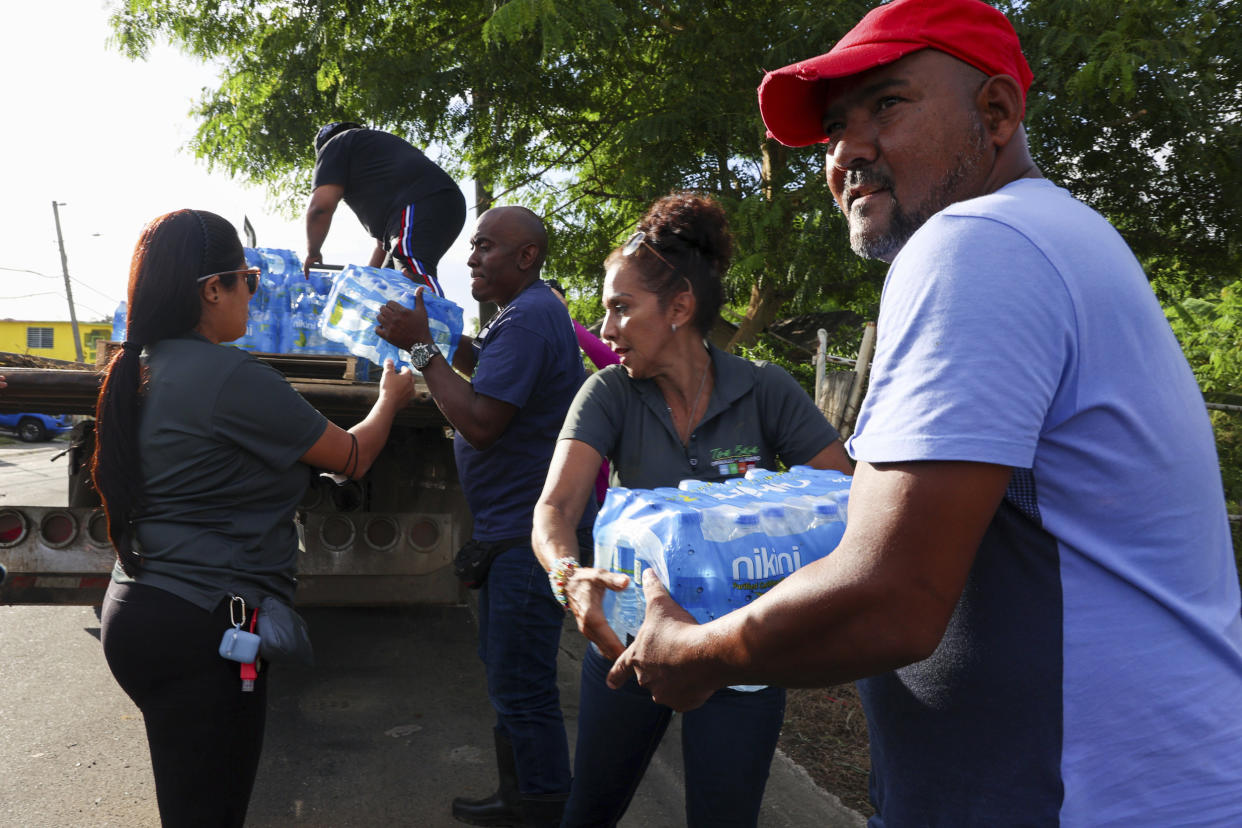Biden approves disaster declaration for hurricane-ravaged Puerto Rico
President Joe Biden has approved a major disaster declaration for Puerto Rico as it reels from Hurricane Fiona, Gov. Pedro Pierluisi said Wednesday.
The declaration will grant access to emergency individual and public assistance for residents affected by the storm.
The administrator of the Federal Emergency Management Agency, Deanne Criswell, began touring affected communities in Puerto Rico on Tuesday, conducting initial damage assessments to support the governor's request.

Official estimates on the damage caused by Fiona will come later as government personnel visit more communities and experts quantify the loss, Criswell said at a news conference Wednesday.
"Now that we find ourselves responding to Fiona, we're going to have an opportunity" to rebuild damaged roads and bridges in a more resilient way "so that they can withstand future impacts," Criswell said.
About 41% of all water service customers, or over 520,000, still did not have water access as of Wednesday morning, according to Puerto Rico’s Water and Sewage Authority.
A larger number of Puerto Ricans also remain without electricity.
Heavy rains from the hurricane have resulted in landslides, destroying roads and leaving dozens of families stranded across many towns.
Puerto Rico's Emergency Management Commissioner Nino Correa said at the news conference that his agency is working on helping stranded families in the towns of Salinas, Moca, Villalba, Orocovis, Jayuya, Juana Díaz, Yauco and Utuado.
Fiona's torrential rains have overflown rivers and small streams, causing "turbulence" in the bodies of water where consumers get their water supply from, Pierluisi said. "It would be irresponsible to provide water service to customers when the water is not safe to drink," he said.
Waiting for electricity
Most of the nearly 1.5 million power customers were still without electricity after an islandwide blackout was reported Sunday about an hour before Hurricane Fiona’s eye neared the southwestern coast.
As of early Wednesday afternoon, about 395,000 customers had their electricity restored, which represents roughly 27% of all customers, according to Luma Energy, the company in charge of power transmission and distribution in Puerto Rico.
"In the south, there is significantly more damage that will take more time to restore," Pierluisi said in Spanish during the news conference.

Even the mayor of one of those southern towns hit the hardest by Fiona estimates it could take two to three months to bring power back to his community, judging by the damage he saw Monday.
“I do hope I’m wrong,” Jayson Martínez, the mayor of Lajas and a former power line worker, said in an interview with Telemundo Puerto Rico.
At least five deaths have been reported in the wake of Hurricane Fiona. One man was dragged by the current of an overflowed river, and two others had accidents with generators. Two other people are believed to have died of natural causes in shelters; however, officials are waiting for the Institute of Forensic Sciences to confirm that.
Lessons to be learned from Maria?
Hurricane Fiona is the first major hurricane to directly hit Puerto Rico since it was ravaged by Hurricane Maria five years ago.
On Wednesday, leaders of the U.S. Commission on Civil Rights said they don't want FEMA to repeat the same mistakes made during the response to Hurricane Maria five years ago, now that Puerto Rico is transitioning from the emergency response phase to the recovery phase after Fiona.
The commission on Wednesday released a 900-page report examining FEMA’s compliance with federal civil rights laws and policies when it responded to Hurricane Maria. The report was the first time the commission had looked into the civil rights implications of disaster response in its 65-year history.
Commissioner Michael Yaki said the report shows how FEMA "fell short in a number of situations," such as responding in a culturally competent way, providing resources in Spanish and appropriately attending the needs of residents with disabilities or serious health conditions, among other issues.
"With regard to Hurricane Maria, the people of Puerto Rico, we believe, were treated in a manner inconsistent with the mandate toward equality, fairness and impartiality," Yaki said.
Another commissioner, Debo Adegbile, said that while it's too early to assess the full extent of Fiona's damage and the subsequent federal response, "what we are witnessing is reminiscent of what we witnessed when Maria devastated the island five years ago."
Some of the recommendations made by the commission include: increasing collaboration across federal agencies, local governments, and aid organizations as well as focusing on survivors with the greatest needs and streamline the process for residents applying for aid.
Follow NBC Latino on Facebook, Twitter and Instagram.
